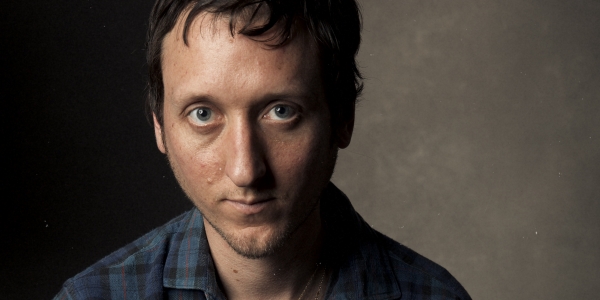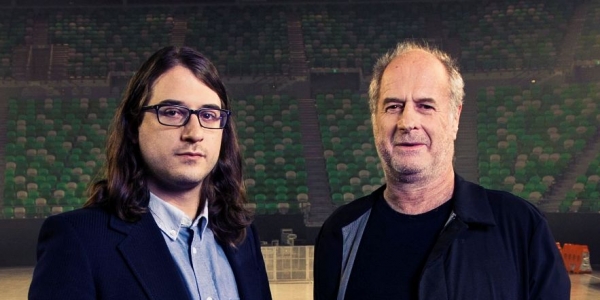The result of Laffer’s break from The Panics, and his dedicated songwriting activities, is his debut solo album, When the Iron Glows Red. Much of the inspiration for the songs on the album derives from Laffer’s experiences while working various manual labour jobs, including a spot at the Melbourne docks. “It was a whole separate journey for me, and the songs just seemed to come from a certain place in my soul that was unique to me,” Laffer says. “I was writing about some of the guys I’d been working around. It’s just like a romance to the job. There’s a song on the record called Right Above My Heart, and it’s from the perspective of a forklift driver called Angelo, who I don’t even know that well,” Laffer laughs.
With his field of sociological vision considerably wider than the young Perth pop songwriter of yore, Laffer’s songs, and his songwriting exhibit a greater level of maturity on the new record. “I’m a little older now, and I see people around me struggling to keep their dreams and goals in life, and strive to be that person they want to be while working in these jobs and being talked down to, or the pressures people have to have certain relationships or what they’re supposed to be job-wise, or financially,” Laffer says. “It just seemed that after I had a few songs that came out on that theme, that became the spirit of the record. It’s not a teenage party record – it seems to be built around relationships and workplaces and things that I’ve been around and experienced in the last few years.”
That creative inspiration – heavy toil in pursuit of economic security – can be seen most vividly in the album’s title track, which derives from a newspaper article Laffer read about the last blacksmith in Hanoi. “I had got a few of the songs down, and I was still at the point of wondering what the record might be, and what might be cohesive about it,” Laffer says. “I was reading the paper, and this quote struck out at me. It was on the subject of this guy working his whole life, and what he said was strangely poetic, and it was said by someone who was probably quite jaded, and stuck in a corner as well. And there was that resignation that people can have which in my mind seems quite beautiful and romantic.”
In that context, I ask Laffer if, as a critically successful – albeit not necessarily financially profligate – musician, his music is his trade, or his art. “I’ve had times when I’ve thought of it as my trade, and I think the healthiest thing for me personally is to consider it my art,” Laffer says. While just about every musician aspires to obtaining economic security through musical performance, for Laffer the notion of music as a day-job can dampen the spark of creativity. “It’s the times when it’s felt like work when I’ve started treading water on a creative level. You’ve got to keep the creative hunger, and not get too used to doing what I’m doing,” he says.
So can the themes of industrial exploitation explored in Right Above My Heart – the idea labour being a dispensable cog in the industrial machine – be extrapolated to the notoriously fickle music industry? Laffer certainly doesn’t feel part of an ‘industry’. “I don’t feel part of an industry – I don’t feel like I’ve made anyone any money!” Laffer laughs, “If anything, I feel like a cog that’s never been able to fit in the machine – I’ve just been rolling along next to it. But I suppose the industry is kind of necessary, even though it can piss me off sometimes, because I’m too in touch with myself creatively to take anyone’s negativity towards it too seriously.”
The other personal element of the record derives from Laffer’s changed familial circumstances. Over the period of the writing and recording of the album, Laffer lost his grandfather; at the same time, Laffer became a father for the first time. The idea of “different family traits that had been passed on” is explored in I See Myself in You. “It was the passing on of knowledge and personal traits through the generations,” Laffer says. “I was a bit shy about it – it can be one of those areas you don’t want to get too close to, putting lullabies to your child on the record.”
Charles Jenkins once remarked that the discipline of his songwriting improved once he became a father – with spare time at a premium, each moment of potential creativity became precious. It’s an observation with which Laffer agrees. “I probably spend far less time staring at a blank wall waiting for something to come into my mind – I’m far more likely to be more busy, more distracted, and for the better,” Laffer says. “It suits me better – I write as I go, and I feel very energised when I have those moments to put something down.”
BY PATRICK EMERY

